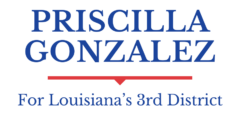The Inflation Reduction Act of 2022 (H.R. 5376) is a comprehensive legislative package aimed at addressing various economic, healthcare, and environmental issues. Key components of the bill include:
- Healthcare:
- Medicare Drug Price Negotiation: Allows Medicare to negotiate prices for certain prescription drugs, aiming to reduce costs for beneficiaries.
- Affordable Care Act (ACA) Subsidies: Extends enhanced subsidies for ACA marketplace plans, making healthcare more affordable for millions of Americans.
- Climate and Energy:
- Clean Energy Investments: Provides significant funding for renewable energy projects, including solar and wind power, to reduce carbon emissions.
- Electric Vehicle Incentives: Offers tax credits for purchasing electric vehicles and investing in green infrastructure.
- Tax Reforms:
- Corporate Minimum Tax: Introduces a 15% minimum tax on corporations earning over $1 billion annually, aiming to ensure that large companies pay a fair share of taxes.
- IRS Funding: Allocates funds to the Internal Revenue Service (IRS) to improve tax enforcement and reduce the tax gap.
- Deficit Reduction:
- Budget Deficit: Projects to reduce the federal deficit by over $300 billion through a combination of revenue increases and cost savings.
Impact of Voting Against the Bill
Voting against the Inflation Reduction Act of 2022, as Clay Higgins did, can be viewed as harmful for several reasons:
- Healthcare Costs: By opposing the bill, Higgins effectively voted against measures that would lower prescription drug prices and make healthcare more affordable for millions of Americans, particularly the elderly and low-income families.
- Climate Action: The bill’s climate provisions aim to combat climate change through investments in renewable energy and green technologies. Voting against these measures can be seen as a setback in the fight against global warming and environmental degradation.
- Economic Inequality: The corporate minimum tax and enhanced IRS funding aim to address economic inequality by ensuring that wealthy corporations pay their fair share. By voting against these provisions, Higgins opposed efforts to reduce economic disparities.
- Deficit Reduction: The bill’s projected deficit reduction could help stabilize the national economy. Voting against it means opposing measures that could improve fiscal responsibility and economic stability.
Overall, Clay Higgins’ vote against the Inflation Reduction Act of 2022 stands as a stark opposition to transformative healthcare, environmental, and economic reforms poised to uplift millions of Americans. His decision undermines crucial efforts to make life-saving medications affordable, combat the escalating climate crisis, and address profound economic inequities. This vote represents a significant blow to initiatives designed to enhance the well-being of a broad segment of the American population, leaving many to grapple with the dire consequences of inaction and neglect.
